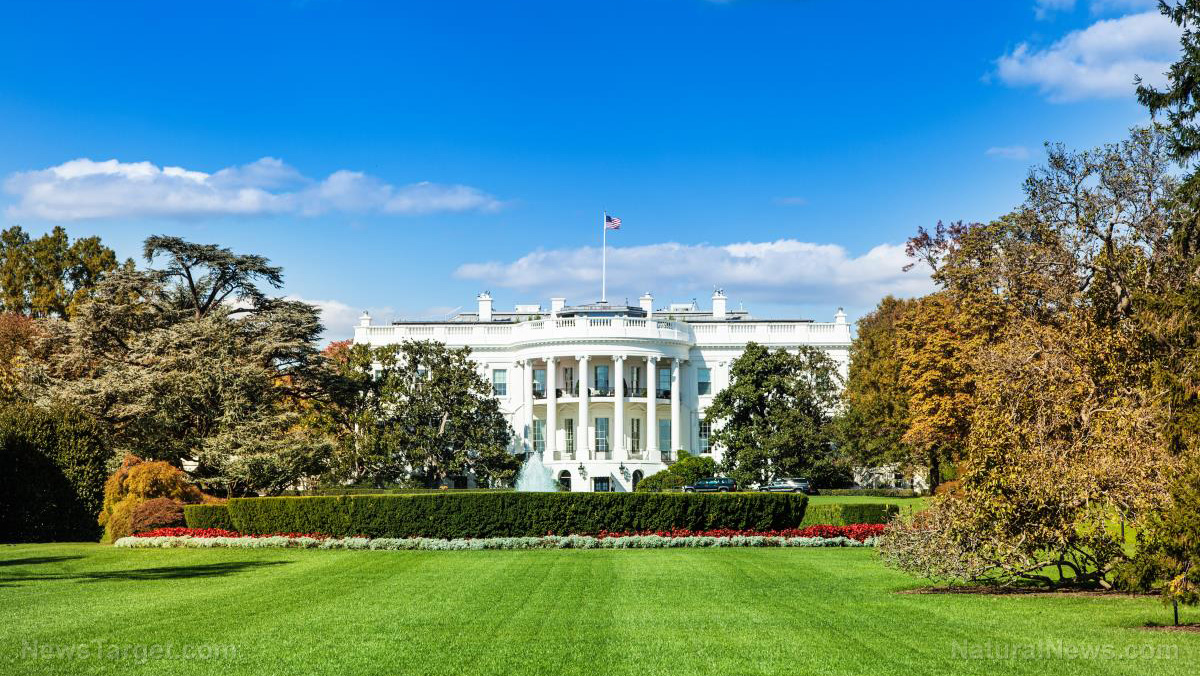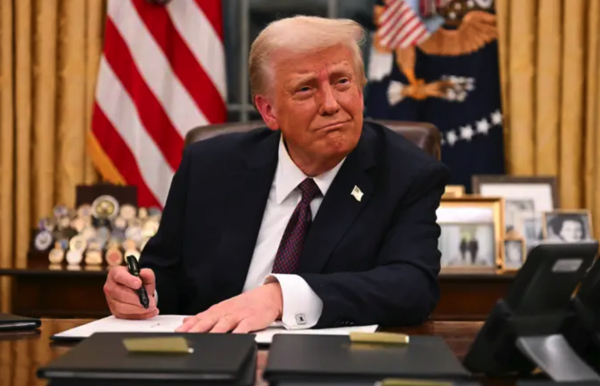 Parler
Parler Gab
Gab
- The Trump administration secures 18 formal trade proposals with more than 100 nations showing interest, transforming tariffs into effective negotiation tools.
- White House trade team meets with 34 nations in a week, emphasizing deals for American workers.
- Tariffs are now a baseline of 10% on imports, with additional tariffs paused for 75+ non-retaliating nations, fostering fair negotiations.
- Wall Street responds positively, with the Dow Jones surging 1,000 points, and progress seen in U.S.-China trade talks.
- Diplomatic wins include a trade framework with India and high-level meetings with Italy and Japan, highlighting an America First approach.
Market confidence and progress with China
Wall Street has responded enthusiastically to these developments, with the Dow Jones Industrial Average surging more than 1,000 points and fully recovering from the previous day's losses. This market confidence reflects growing investor optimism that the administration's trade strategy will yield long-term economic benefits without triggering a damaging trade war. Even with China, where tensions remain high with reciprocal tariffs (145% from the U.S. and 125% from Beijing), progress is evident. President Trump has signaled willingness to substantially lower these tariffs once a fair agreement is reached, telling reporters, "It won't be that high." Treasury Secretary Bessent expressed confidence that both nations recognize the current impasse is "unsustainable," creating momentum toward eventual de-escalation.America First diplomacy yields results
The administration has also scored diplomatic wins, with Vice President JD Vance's trip to India yielding a framework for a future trade agreement. Leavitt characterized this as significant progress with a nation that has "been ripping off the United States and American workers for a very long time." Additionally, high-level meetings with Italian Prime Minister Giorgia Meloni and Japan's Economic Revitalization Minister Ryosei Akazawa suggest more bilateral deals are imminent. After meeting with Meloni, Trump expressed confidence that the U.S. and European Union could reach a mutually beneficial agreement. What distinguishes this approach from previous administrations is its unwavering focus on American economic interests. Rather than pursuing ideological free trade principles, the Trump team evaluates each agreement based on tangible benefits for American industries and workers. This America First economic strategy has transformed U.S. bargaining power on the world stage. Critics initially dismissed Trump's tariff strategy as reckless, but the international response has silenced many detractors. With nations lining up to negotiate rather than retaliate, the administration has demonstrated that American economic leverage, when properly utilized, can reshape global trade dynamics. As negotiations continue, the administration maintains that all deals must meet the president's standard of fairness for American workers. This principle, rather than arbitrary deadlines or political pressure, will determine the final outcomes of these discussions. The rapid succession of trade proposals signals a significant shift in the global economic landscape and one where America's economic interests are once again taking center stage after decades of being subordinated to geopolitical considerations and multilateral frameworks that failed to protect domestic industries. Sources for this article include: YourNews.com FoxBusiness.com NYPost.com DailySignal.comFederal probe into UC Berkeley’s concealed Chinese funding reveals national security breach
By Willow Tohi // Share
URGENT REPORT: The China Import Embargo – What to Stockpile Now Before America Runs Out
By Mike Adams // Share
House GOP unveils $69 billion border security plan ahead of global events
By Willow Tohi // Share
Battleground North America: Canada votes on sovereignty amid U.S. tariff threats
By Willow Tohi // Share
Health Ranger Report: Fadi Lama identifies the West’s structural failures
By Kevin Hughes // Share
Governments continue to obscure COVID-19 vaccine data amid rising concerns over excess deaths
By patricklewis // Share
Tech giant Microsoft backs EXTINCTION with its support of carbon capture programs
By ramontomeydw // Share
Germany to resume arms exports to Israel despite repeated ceasefire violations
By isabelle // Share










